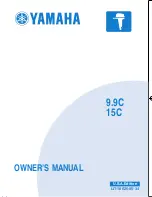
3-3
Chapter 3: Troubleshooting
http://www.supermicro.com/techsupport/download.htm.
Note: Not all BIOS can be flashed depending on the modifica-
tions to the boot block code.
3. If you still cannot resolve the problem, include the following information
when contacting Supermicro for technical support:
• Motherboard model and PCB revision number
• BIOS release date/version (this can be seen on the initial display when
your system first boots up)
•System configuration
An example of a Technical Support form is posted on our web site at
http://www.supermicro.com/techsupport/contact_support.htm.
4. Distributors: For immediate assistance, please have your account number
ready when contacting our technical support department by e-mail at
3-3
Frequently Asked Questions
Question: What type of memory does my motherboard support?
Answer:
The P4SPA+/P4SPE supports up to 4 GB of non-ECC,
unbuf-
fered
DDR-400/333/266, two-way interleaved or non-interleaved SDRAM.
See Section 2-4 for details on installing memory.
Question: How do I update my BIOS?
Answer:
It is recommended that you
not
upgrade your BIOS if you are not
experiencing problems with your system. Updated BIOS files are located on
our web site at http://www.supermicro.com/techsupport/BIOS/bios.htm.
Please check our BIOS warning message and the information on how to
update your BIOS on our web site. Also, check the current BIOS revision
and make sure it is newer than your current BIOS before downloading.
Select your mainboard model and download the BIOS file to your computer.
Unzip the BIOS update file and you will find the readme.txt (flash instruc-
tions), the awdflash.exe (BIOS flash utility) and the BIOS image (xxxx.bin)
files. Copy these files onto a bootable floppy and reboot your system. It is
not necessary to set the BIOS boot block protection jumpers on the
mainboard. At the DOS prompt upon rebooting, enter the command
"awdflash." Then type in the BIOS file that you want to update (xxxx.bin).
















































